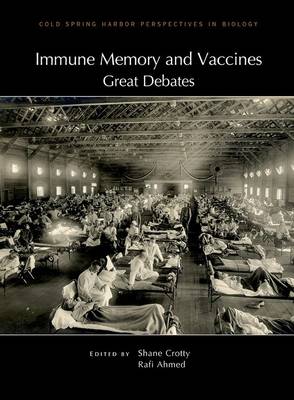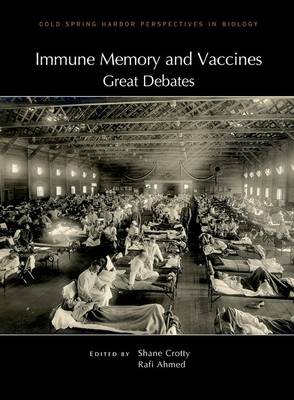
- Retrait gratuit dans votre magasin Club
- 7.000.000 titres dans notre catalogue
- Payer en toute sécurité
- Toujours un magasin près de chez vous
- Retrait gratuit dans votre magasin Club
- 7.000.000 titres dans notre catalogue
- Payer en toute sécurité
- Toujours un magasin près de chez vous
Immune Memory and Vaccines: Great Debates
123,95 €
+ 247 points
Description
After an initial encounter with a pathogen, the adaptive immune system creates immune cells that remember the antigens on the pathogen and allow the body to rapidly mount a response during future encounters. Vaccines likewise generate immune memory, preventing the body from succumbing to potentially dangerous infections. Understanding the mechanistic basis of immune memory is therefore essential for designing effective vaccines. Written and edited by experts in the field, this collection from Cold Spring Harbor Perspectives in Biology focuses on the critical questions currently debated in the field of immune memory and vaccination. Topics include the plasticity of memory CD4 T cells, the formation of germinal centers by memory B cells, the contributions of natural killer cells to immune memory, and the influence of commensal microbiota on immune responses. Several contributors respond to each question, providing a variety of fresh, concise perspectives on each topic. Additional questions address the development and effectiveness of vaccines to various pathogens (e.g., dengue virus and Bordatella pertussis), as well as efforts to develop vaccines against cancer. This volume is therefore valuable for all immunologists, cell biologists, and medical scientists wishing to understand immunological memory, vaccines, and the implications for human health and disease.
Spécifications
Parties prenantes
- Editeur:
Contenu
- Nombre de pages :
- 432
- Langue:
- Anglais
- Collection :
Caractéristiques
- EAN:
- 9781621821540
- Date de parution :
- 31-01-18
- Format:
- Livre relié
- Format numérique:
- Genaaid
- Dimensions :
- 183 mm x 264 mm
- Poids :
- 1156 g






